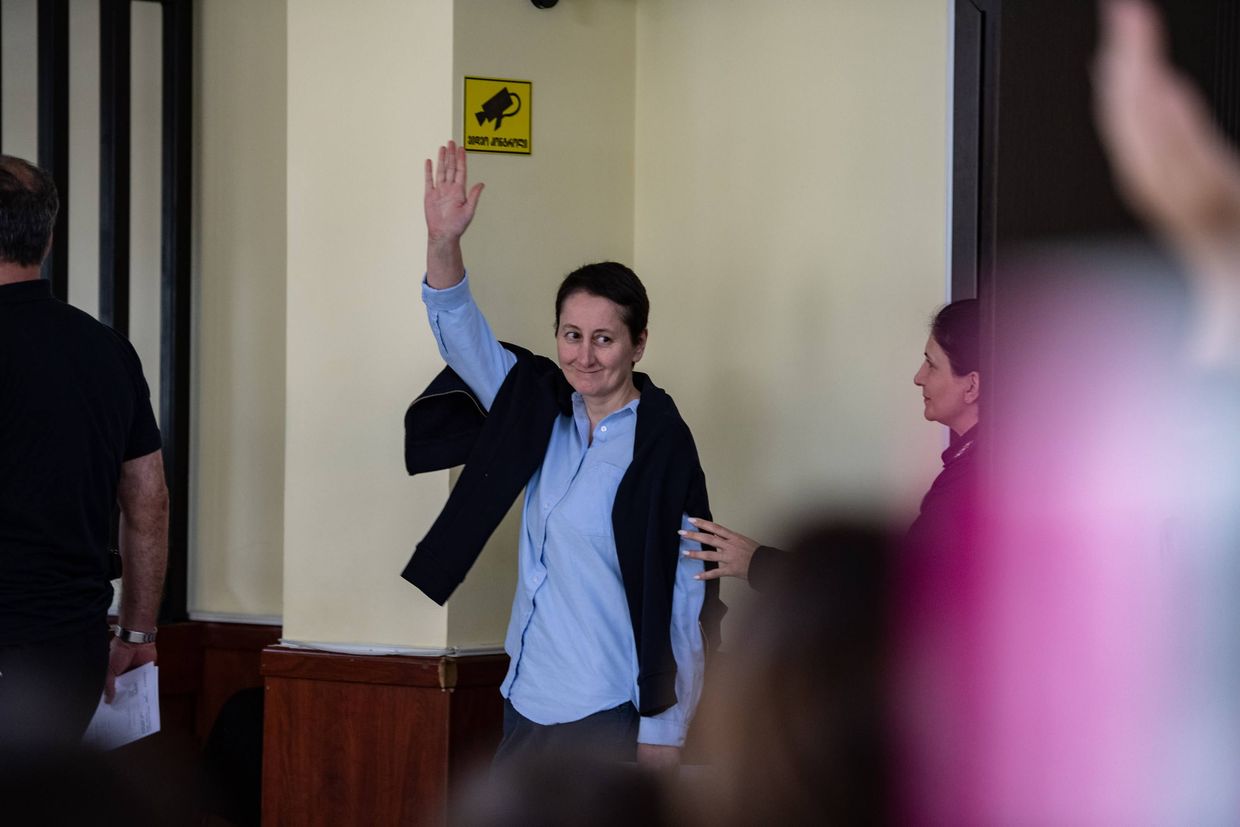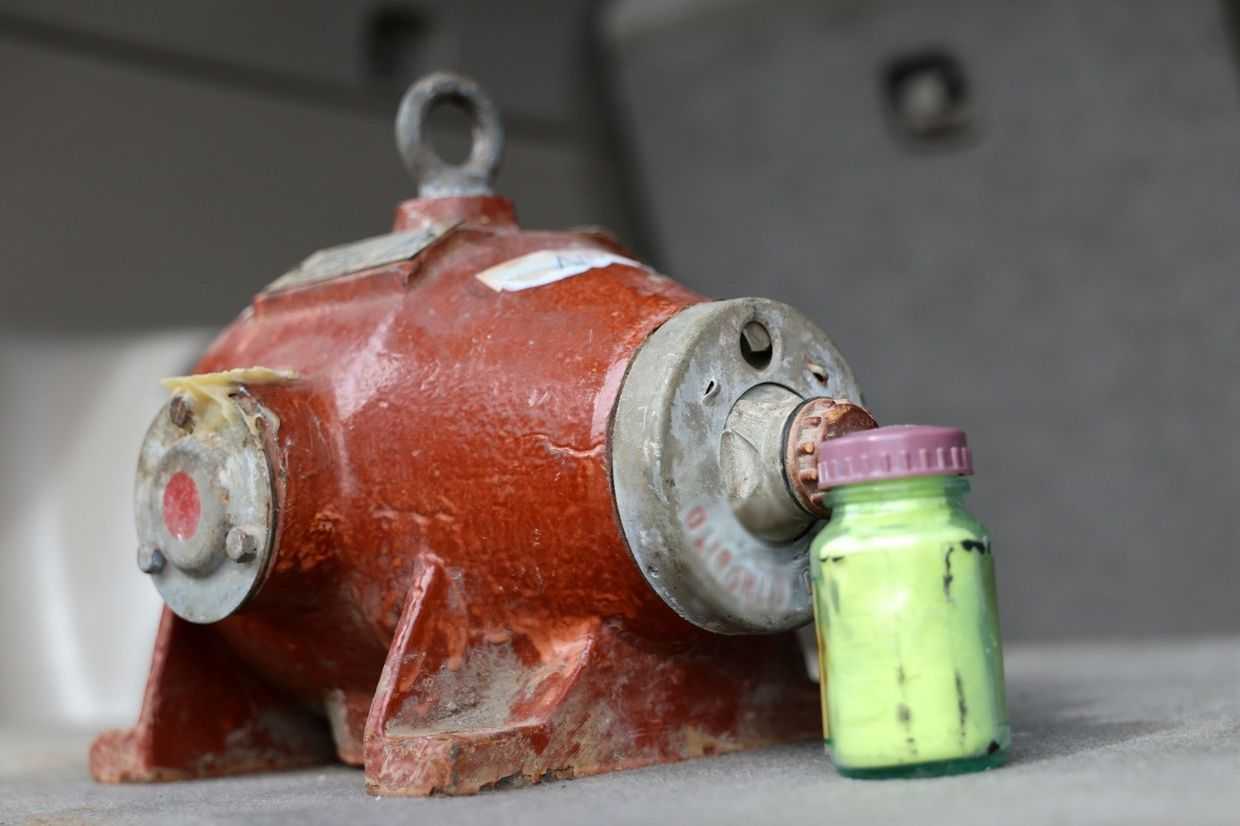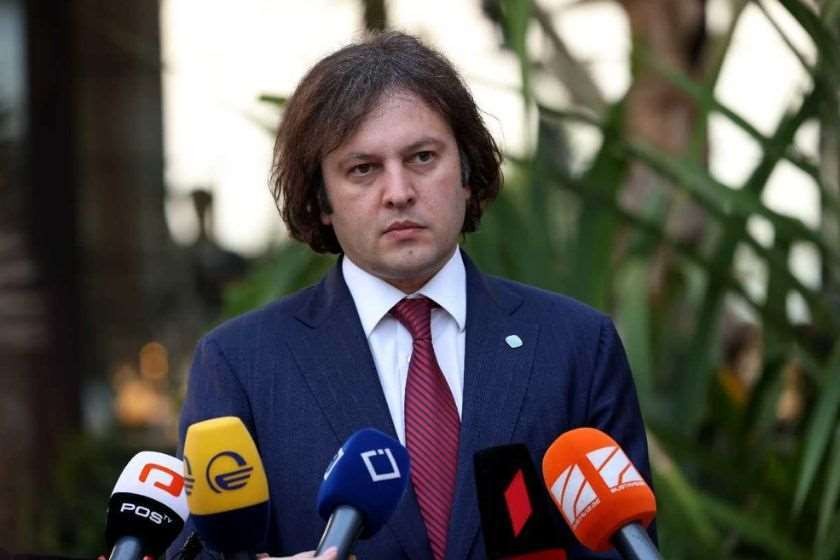
Tbilisi City Court has terminated a case in which jailed media founder Mzia Amaghlobeli was seeking a retraction from Prime Minister Irakli Kobakhidze over accusations he had made against her. Among the contested remarks was Kobakhidze’s claim that Amaghlobeli had been acting ‘on orders’ at the time of her detention in January.
The decision to stop the case was made by Judge Davit Akobidze on Monday at the very first hearing.
According to Netgazeti, Amaghlobeli did not attend the hearing, but her representative, lawyer Ana Rekhvishvili, was there. As for Kobakhidze, he neither appeared in court nor sent a representative.
Amaghlobeli’s side was seeking a public retraction from Kobakhidze of his claims, including that Amaghlobeli had acted on ‘assignment’ with the intent to discredit the Georgian law enforcement during her arrest.
Local media reported that Akobidze deliberated on the spot before making his decision. According to Publika, Akobidze stated that ‘a lawsuit cannot be admitted for statements made in the context of political debate’.
Publika quoted Rekhvishvili, who said that Akobidze’s decision has opened the way for politicians to spread falsehoods without facing accountability.
‘In essence, this approach to such a lawsuit sets a dangerous precedent for the Georgian judiciary’, Rekhvishvili said.
Amaghlobeli’s arrest and deteriorating health
Amaghlobeli, the founder of the Batumelebi and Netgazeti publications, was first detained at night on 11 January after putting a sticker calling for a nationwide strike on a fence outside a police station in Batumi. She had done so in protest against the detention of her colleague, Tsiala Katamidze, for putting up the same sticker on the same street.
Shortly after being released, she was again arrested after slapping Batumi Police Chief Irakli Dgebuadze during a heated exchange outside the police station amidst the ongoing anti-government protests.
Throughout the original court proceedings, Amaghlobeli spoke about the circumstances leading up to the incident, including degrading treatment by the police, as well as the abuse she faced following her arrest. This included being spat in the face by Dgebuadze, subjected to verbal abuse, and being denied access to a toilet.
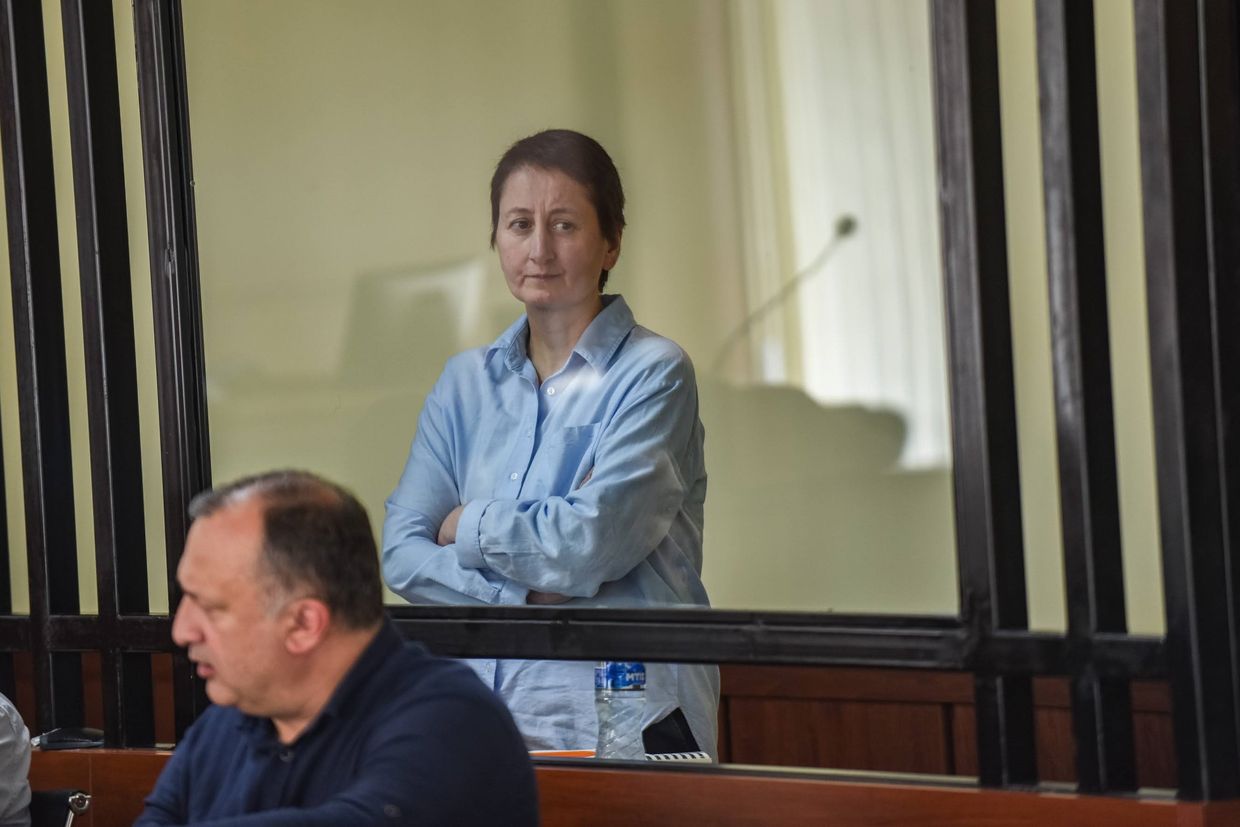
Nearly seven months after her detention, Amaghlobeli was sentenced by the Batumi City Court to two years in prison. The sentence was upheld by the Court of Appeals on 19 November.
According to her lawyers, Amaghlobeli’s eyesight, which was poor before the arrest, sharply deteriorated during her imprisonment. As a result, earlier in November, her lawyers appealed to the penitentiary service to grant Amaghlobeli the status of a person with a disability.
The Georgian Young Lawyers’ Association (GYLA), which represents Amaghlobeli’s, stated on Monday that despite multiple requests, Amaghlobeli has not been provided with the examinations necessary to plan her medical treatment.
‘Along with her freedom, Mzia Amaghlobeli has been deprived of the right to undergo examinations at a clinic equipped with medical technology suitable for her diagnosis, and, based on proper tests, to receive information on the procedures required to preserve her vision at its minimal remaining level’, the organisation said.
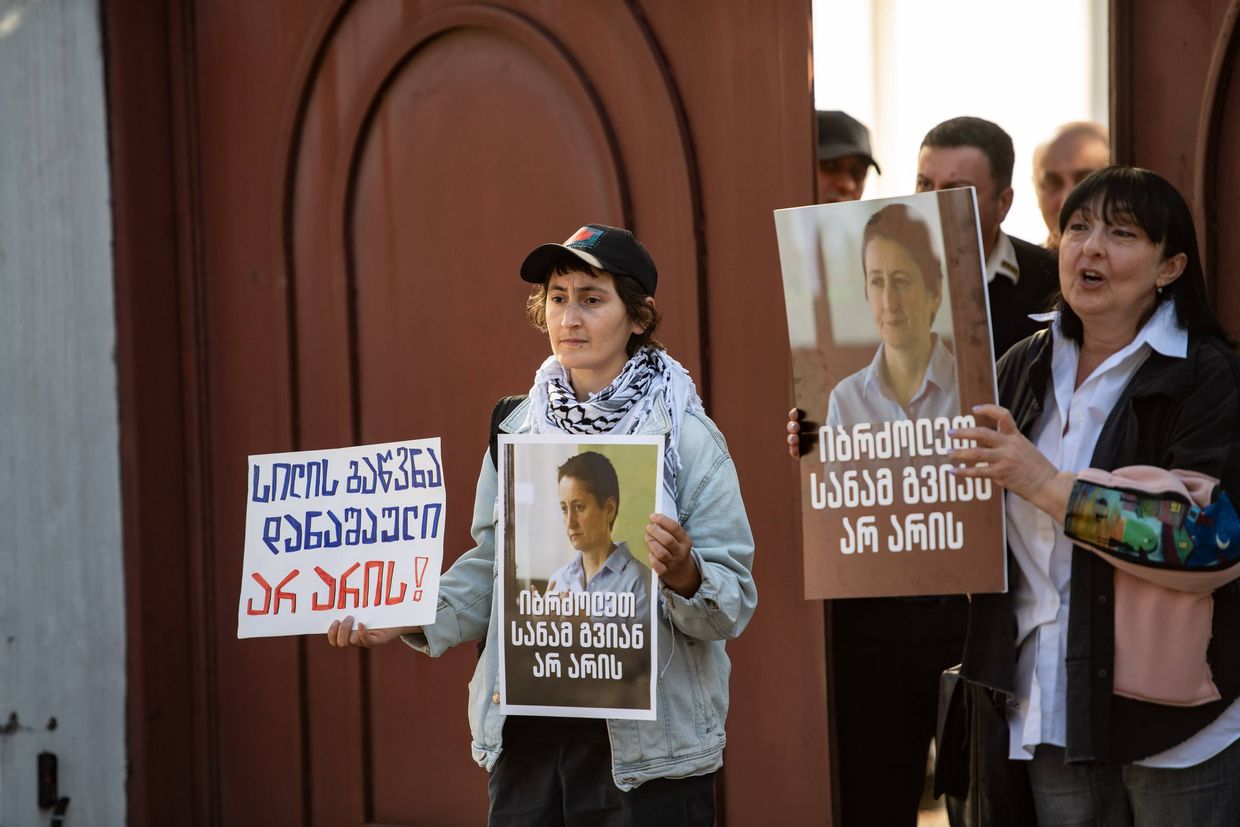
Amaghlobeli’s case has been widely condemned by critics both in Georgia and abroad as disproportionate and politically motivated, linked to her work as a media personality. She has received numerous local and international awards, including the EU’s Sakharov Prize, as well as the German-Norwegian Free Media Award.
Critics have also pointed to the video of Amaghlobeli’s arrest following the slapping incident as early evidence that her punishment was premeditated — the footage showed Dgebuadze insulting and threatening her.
Following the arrest, Georgian Dream officials — including Prime Minister Irakli Kobakhidze — promoted the theory that Amaghlobeli was acting on prior instructions as part of a plan to discredit the Georgian police.
